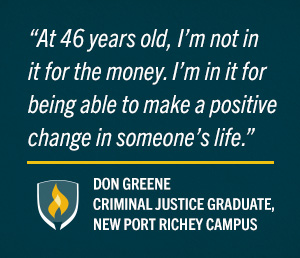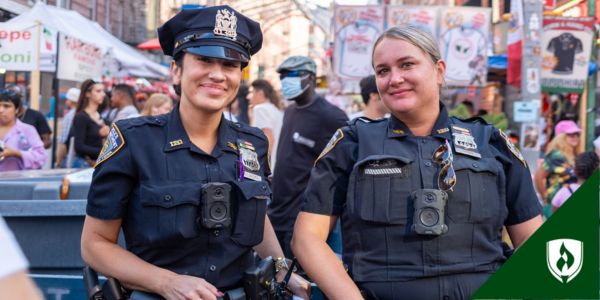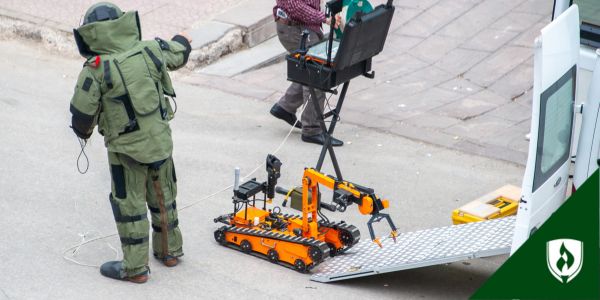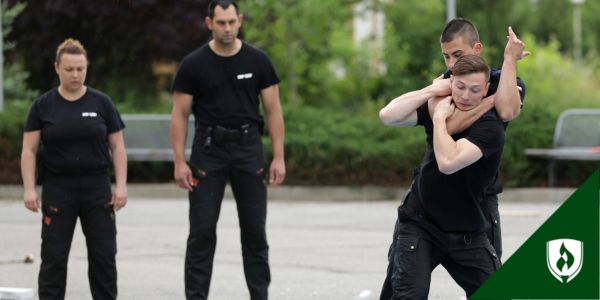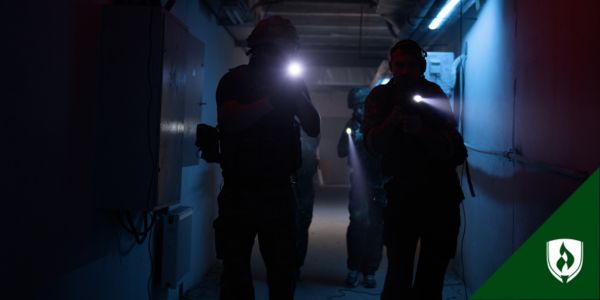In May thousands of law enforcement officers from all over the world will gather in Washington, D.C., for National Police Week.
President Kennedy signed a proclamation in 1962 declaring every May 15 as Peace Officers Memorial Day and the days surrounding it Police Week. During this week, several events are held to honor members of law enforcement who gave their lives in the line of duty.
This week serves as a somber reminder of the risks involved in becoming a law enforcement officer, but also provides a way to show appreciation for the brave men and women who risk their lives every day just by going to work.
It takes a special mindset to pursue a career in law enforcement and often the motivations for becoming a police officer are wildly different from those in other careers. To keep with the spirit of National Police Week, we’ve asked Rasmussen College criminal justice students and graduates why they’ve chosen to pursue a career in law enforcement.
Student story: Don Greene
New Port Richey criminal justice graduate Don Greene’s motivation for becoming a police officer is simple; to help his community.
Prior to enrolling in the criminal justice program Greene spent several years coaching youth football while working as a building supply salesman. The economic recession of 2008 led to Greene being laid off and in search of a new career. Greene saw firsthand the positive effect he could have on young people as a coach, and wanted to make a career out of helping improve the lives of others.
“You may deal with a thousand people but if you can change one or two of their lives for the better, it makes everything worth it,” Greene says. “At this point in my life, at 46 years old, I’m not in it for the money. I’m in it for being able to make a positive change in someone’s life.”
Greene wants to eventually become a school resource officer where he hopes he can continue providing positive guidance similar to what he has given as a football coach.
“I’ve had troubled kids play for me who just yearn for approval and for someone to tell them they did a good job,” Greene says. “By being there and giving them some of that support I’ve seen these kids change their outlook on everything. They become better students and better people. The satisfaction of seeing that change makes it all worth it.”
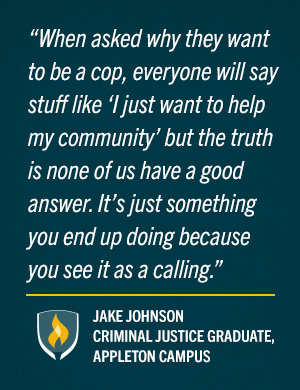 Student story: Jake Johnson
Student story: Jake Johnson
Like a lot of young men, Appleton criminal justice graduate Jake Johnson grew up with an interest in police work. It started simply enough— he loved watching police shows on television and spent his youth playing with police toys trying to catch the ‘bad guys.’
His passion for police work was cemented after taking part in a police explorers program as a teenager. Unlike some of the other kids in the program, his interest didn’t fade after seeing the amount of paperwork that comes with the job so he knew he was on the right track. When asked about his specific motivation, Johnson says it’s hard to pinpoint exactly what made him want to be a police officer.
“When asked why they want to be a cop, everyone will say stuff like ‘I just want to help my community’ but the truth is none of us really have a good answer,” Johnson says. “It’s something you end up doing because you see it as a calling, not because you ‘know’ it’s what you want.”
Johnson—who is also a U.S. Air Force veteran—earned a criminal justice associate degree before moving to Arkansas, where he now works as a police officer. Johnson’s time as a police officer has pulled back the curtain on his childhood preconceptions.
“Growing up, I always thought of police officers as kind of like superheroes,” Johnson says. “What shocked me as an officer was just how fragile and human we all really are. We don’t show it but when we get back from a bad call its clear how much it affects us.”
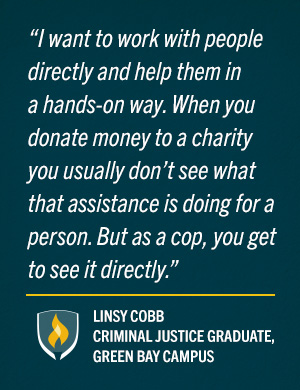 Student story: Linsy Cobb
Student story: Linsy Cobb
Ever since she was young, Green Bay criminal justice student Linsy Cobb used to scare her mother with a single sentence: “Mom, when I grow up I want to be a cop!”
Cobb’s mother was no fool—she knew the danger that comes with police work and tried in vain to guide her daughter into less dangerous fields like veterinary science. But Cobb caught the bug for police work early in life and she wasn’t going to lose it any time soon.
“You don’t wake up one day and decide you’re going to be a cop—a lot of the time people have been thinking about it for a long time,” Cobb says. “It’s just something that clicks for them.”
Cobb began her “cop career” during her senior year of high school while working as a crossing guard for her hometown police department. The experience helped build her interest in police work as the officers she worked with would share stories from the previous night.
The camaraderie Cobb shared with her coworkers was an added benefit, but her main motivation for becoming a police officer comes from the satisfaction of being able to help others.
“I want to work with people directly and help them in a more hands on way,” Cobb says. “When you donate money to a charity you usually don’t see what that assistance is doing for a person. But as a cop, you get to see it directly.”
After earning a degree and gaining some law enforcement experience, Cobb hopes to eventually work in an investigative role—maybe as a detective or member of a crime scene investigation unit. Donning the badge and uniform of a police officer will be the culmination of a dream for Cobb, but what that badge represents may be even more important.
“A lot of people see the badge as more of a power or authority thing,” Cobb says. “But to me it shows that I am here to serve or help you and that it’s okay to trust me. “
Found your calling?
Police work isn’t a job, it’s a calling. If you’ve got a passion for justice, service and improving your community, a Law Enforcement Degree can put you on the path toward a fulfilling career.
